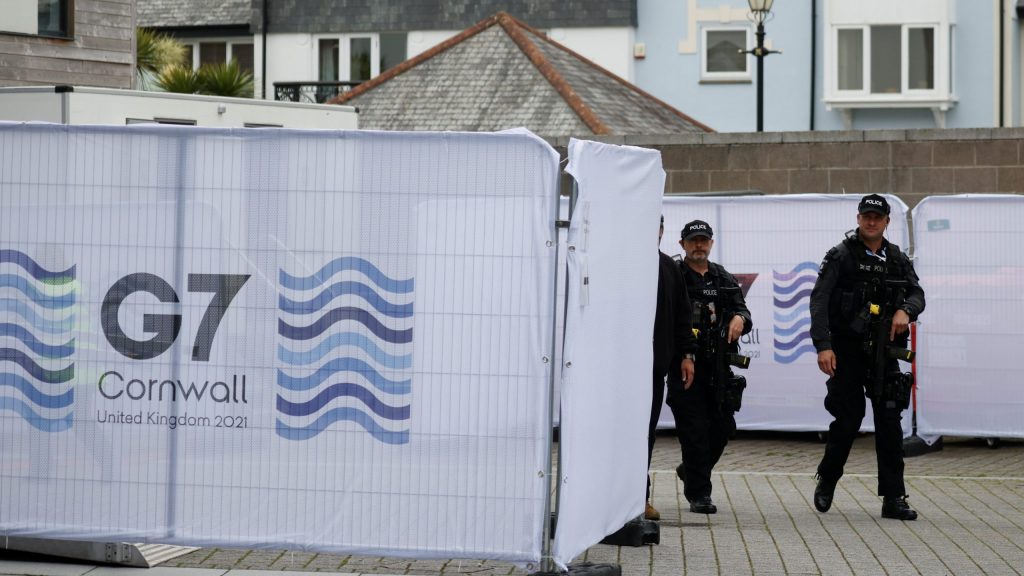The world cannot recover from the health and economic crises of the COVID-19 pandemic and tackle climate change without debt relief for the world's poorest countries, said the secretary-general of Caritas Internationalis.
As the leaders of the world's wealthiest nations prepared to meet for the G7 summit in Cornwall, England, Caritas insisted their agenda could not possibly succeed without canceling the debt of poor countries and allowing those funds to be reinvested in COVID-19 vaccines and health care, economic recovery projects and combating the climate crisis.
At the summit June 11-13, U.S. President Joe Biden was set to meet with the heads of the other G7 governments -- Canada, Japan, Germany, France, Italy and the United Kingdom. The prime ministers of Australia and India and the presidents of South Korea and South Africa also were invited to the meeting.
"COVID-19 put the rampant social injustices in today's world under a magnifying glass," Aloysius John, secretary general of Caritas Internationalis, said in a statement June 10. "The only way to rebuild the future must be by eliminating such injustices."
Caritas Internationalis is the Vatican-based umbrella organization for national Catholic charities around the world. Its members provide social services and emergency and development aid in some 200 countries.
In his statement, John cited the example of Zambia where "45% of the government's annual budget services the country's massive debt. How can a country rebuild with such a burden? And how can it respond to COVID if the few resources available cannot be used to strengthen the national health system -- including faith-based organization providers -- that would store and distribute vaccines?"
"G7 countries must lead the way in COVID-19 response and recovery to support those worst affected by the pandemic and support a just, green recovery," John said. "The first step is to ensure that all debt payments are cancelled, including to private creditors. This is the quickest way of getting finance to where it is most needed."
John also urged the seven governments to help mobilize financing needed to respond to the immediate needs caused by COVID -- the need to strengthen healthcare systems, social safety nets and access to vaccines -- and to support "a just, green recovery in ways which do not deepen the debt crisis in the global South."
Part of that, he said, could be accomplished by issuing new "Special Drawing Rights," an asset used for transactions among members of the International Monetary Fund.
"This moment of crisis requires an unprecedented and innovative response," John said. "G7 countries should explore options to utilize their SDRs to support countries in the global South, including middle-income countries, in ways that do not increase debt and conditionality."
Finally, John called on the G7 leaders to "demonstrate they are taking the COP26 talks and tackling the climate crisis seriously, including by committing to end fossil fuel subsidies." COP26 is the U.N. climate summit, which will be held in Scotland in November.

